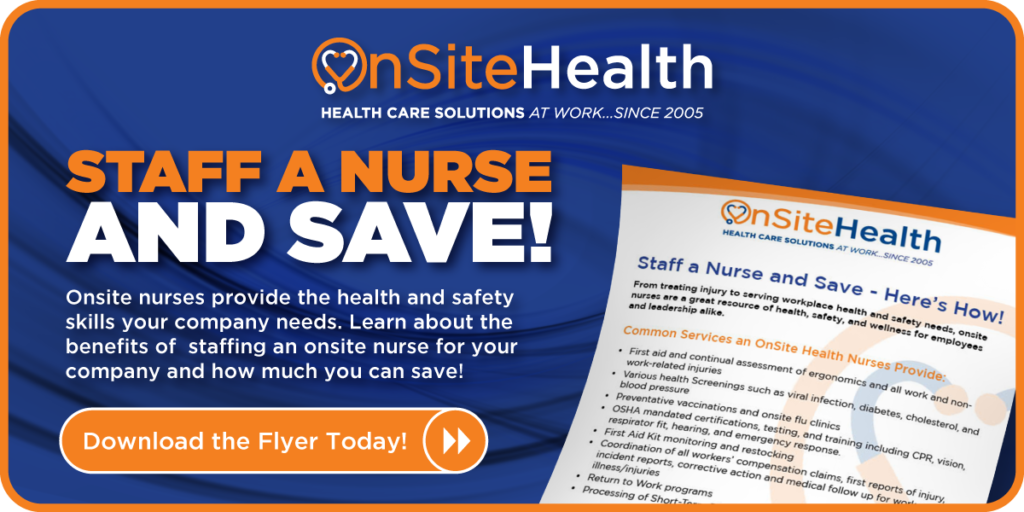Loud noise in the workplace is a common occupational hazard affecting many employees each year. More than 20,000 cases of occupational hearing loss are reported annually, and many cases result in permanent hearing loss. The causes of workplace hearing loss vary depending on the industry and type of work being performed, however, as an employer, you’re responsible for providing a safe working environment for your employees that includes incorporating hearing conservation strategies into the workplace.
Feeling Tense? Try Office Yoga
What are the Common Causes of Loud Noise in the Workplace
The causes of workplace hearing loss can vary depending on the industry and type of work being performed. Here are a few of the main causes of loud sounds in the workplace.
Large Equipment, such as industrial machinery, can generate loud noise in the workplace. Especially construction sites where employees use loud tools, such as power drills, saws, and pneumatic hammers.
Loud Speakers can also be a source of deafening noise in the workplace, even exposure to extreme sounds for a long time can cause hearing loss. Also, faulty audio equipment can produce static and unpleasant sounds.
Alarms and Sirens including fire alarms, security alarms, and emergency sirens all produce loud sounds in the workplace.
Why Every Business Needs to Incorporate Hearing Conservation in the Workplace
Exposure to loud noise in the workplace can be harmful to employees’ health and well-being. Prolonged exposure to loud noise may cause irreversible damage to the employees’ hearing. This can lead to permanent and profound hearing loss or tinnitus; a condition that causes a constant ringing sound in the ear. Listening to loud noise for a long period of time can overstress the hair cells in the ear, causing them to die over time. The hearing loss will continue if exposure to loud noise continues.
Hearing lost can reduce productivity, as it can be difficult for the employee to concentrate and focus on tasks. Workers with noise-related hearing loss may have difficulty communicating at work, leading to misunderstandings and mistakes. Exposure to loud sounds can also cause stress and anxiety among employees. Incorporating hearing conservation in the workplace can prevent this.
How OnSite Health Primary or Nurse Clinics Can Help Address Loud Noises in the Workplace
As an employer, you can take steps to reduce the chances of work-related hearing loss in the workplace. OnSite Health’s medical professionals can help to raise awareness about the importance of protecting one’s hearing in the workplace by promoting hearing conservation. OnSite Health clinics and nurses perform regular hearing tests for your employees to identify early signs of hearing loss or any other noise-related issues. This helps employees take appropriate action to protect their hearing from further damage. OnSite Health primary care clinics may also provide medical treatment for your employees who experience hearing issues, including tinnitus, hearing loss, or any other related condition.
With early intervention, hearing problems can be minimized. OnSite Health clinicians can provide education and training to your employees to inform them of the risk associated with exposure to loud noise, as well as strategies to reduce noise levels and prevent hearing loss.
Implement Hearing Conservation Strategies for Your Employees with OnSite Health
Having an OnSite Health clinic is an effective way to address the dangers of loud noise in the workplace. By providing regular testing, medical treatments, and education, you can better protect employees from the harmful effects of noise exposure. At OnSite Health, we specialize in on-site health screenings for all employees; not only hearing, but also screenings for vision, glucose, biometrics, and blood pressure to name a few.
Our knowledgeable healthcare team helps employees across the country make healthy changes. This leads to increased productivity and reduced absenteeism. Check out some of OnSite Health’s services to learn more!

